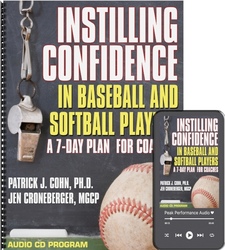
How J.A. Happ Took Control of his Season
Emotions can be friend or foe on the baseball field. Powerful emotions can give your performance a boost or be a hindrance in baseball games.
Can you think of a negative event that stirs up intense negative emotions that hurt your play on the baseball field? How about a successful event that elicits positive emotions that enhance your play in the moment?
Strong emotions, both positive and negative, of a past event can be elicited by just being in the same or similar environment.
Even though you may not be consciously thinking about that event, still those intense emotions surface.
Here is an example of how negative emotions can impact your play…
You played a team on their home turf a year ago. While attempting to steal a base, you rolled your ankle and tore ligaments that sidelined you for the rest of the year.
You were frustrated, angry, sad over the event, especially as your team made the playoffs and you had to watch from the bench while your team succeeded WITHOUT YOU! It was a difficult rehab with several setbacks.
You were unsure you would be able to return to action the next season. You worked hard in rehab, pushing through all the discomfort of the exercises. You successfully strengthened your ankle and were ready to play on Day One of pre-season.
You were optimistic and happy to be back as you regained your starting role on the team. It felt amazing to be playing second base again. Mid-season, you faced the same team on their home field.
Without even thinking about the past painful event, those intense negative emotions came rushing back along with images of the injury that took place on that very field against that very team.
Just the memory of one stressful event coupled with strong, negative emotions is enough to set off a string of events that can lead to poor performance for the rest of the season.
One bad game can stir up such intense emotions that those emotions affect your very next game.
For example, New York Yankees starting pitcher J.A. Happ after a rough start to the 2020 coronavirus-shortened season. In Happ’s first two starts, he pitched a total of seven innings and gave up eight earned runs including three home runs and eight walks.
Happ turned things around by keeping his emotions in check in his third start of the season against the Boston Red Sox, giving up only one run in 5 2/3 innings for the victory.
Even though Happ viewed the game as important, he was able to keep his emotions from overtaking him and maintain his focus on the mound.
HAPP: “Honestly, I felt like it was a big game for me. You always want to get back on track. I try not to think of consequences here or there.“
Just like Happ, you can manage your game-time emotions with the help of mental training.
When you learn mental game and focusing strategies, you will be able to keep your emotions from taking over your performance.
Controlling Emotions Before They Take Over your Game
First, treat every game as a new opportunity for success. Don’t carry past failures onto the diamond.
Relaxation strategies can help you relax physically during games, such as breathing, tightening and releasing, shaking it out.
However, you must maintain a neutral view of mishaps during the game so they don’t become a “monkey on the back.” The key is to play on without dwelling on the past.
Related Sports Psychology Articles
- Controlling Emotions on the Diamond
- Control Your Thoughts. Control Your Performance
- Matt Garza: Controlling Game Time Emotions
*Subscribe to The Sports Psychology Podcast on iTunes
*Subscribe to The Sports Psychology Podcast on Spotify
Instilling Confidence in Baseball And Softball Players
Confidence, more than any other mental game attribute, is vital for your team’s success. If your players have it and know how to keep it, they maximize their success. Your team cannot reach their full potential unless each player can harness the power of stable and enduring self-confidence–so your team can perform as a confident team.
Your players might possess a ton of physical talent, have great coaching, and train harder or practice more than anyone else in your league, but if they do not have the self-confidence to match, your team can’t utilize this talent.
“Instilling Confidence in Baseball and Softball Players” program consists of one 72-minute audio CD that includes 7 days of confidence-fueling exercises. You’ll also receive a simple-to-follow 74-page coaches’ manual that guides you through the 7 team session you’ll conduct!

